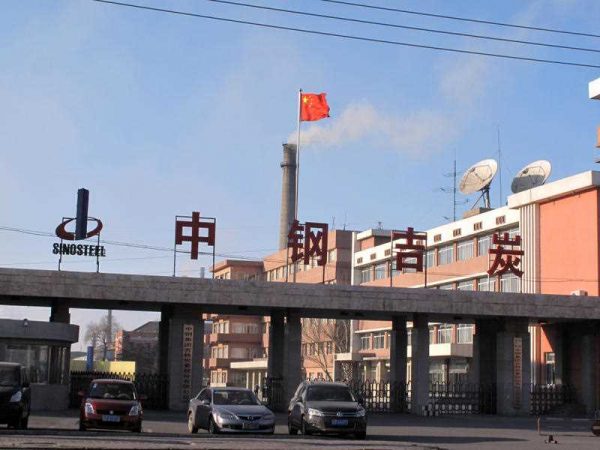But the guidelines also reinforce and strengthen the role of the Chinese Communist Party in the leadership of SOEs. The bottom line: not only are SOEs here to stay, they will be ‘stronger, better and bigger’.
The SOE reform guidelines aim to make SOEs ‘truly independent’ market entities through stronger and more independent boards of directors. SOE management will be insulated from undue administrative interference from the state bureaucracy. The guidelines indicate that boards should be fully responsible for the enterprises’ overall strategies, human resources and salaries. Boards should no longer be subject to undue interference from government departments or organisations. This is consistent with best practice of SOE management in OECD economies.
Attracting private capital into SOEs to further dilute the state’s equity share has also been encouraged, though for political correctness this is called ‘mixed capital’ rather than privatisation. In any case, wholesale privatisation remains off the table. Unlike Thatcher’s Britain, where privatisation was a political objective to reduce the footprint of the state, the object of China’s reforms is to improve the performance of state assets. The market is a tool for this purpose. Giving the market a ‘decisive’ role was also the leitmotif of the Party’s 2013 Decision on Deepening Reform. In promoting the new guidelines, the head of research at the State-owned Assets Supervision and Administration Commission of the State Council emphasised the word ‘market’, which appeared in the document 35 times.
Despite a greater role for the market, the state will be much more explicit in defining the objectives of state ownerships. SOEs will be sorted into groups — those expected to operate commercially and those that are essentially non-profit providers of public goods and services. For commercial entities operating in sectors, where profit maximisation may not be socially desirable (for example, in natural monopolies or for areas concerned with national defence), specific objectives should be spelled out. Setting explicit goals for SOEs helps dull the theoretical criticisms that SOE efficiency suffers from conflicting and often undefined policy objectives.
But the guidelines, and subsequent policy documents and commentary, focus most on strengthening Communist Party leadership in SOEs. Their commitment to isolating business management from the state doesn’t extend to insulating the business from the ruling Party. Alongside the iteration of the word ‘market’, ‘Party’ appears in the guidelines 69 times. All SOEs, as well as the majority of non-SOEs, already have a Party Committee. According to the new guidelines, the chairman of the otherwise independent board of directors should also be the secretary of the Party Committee. The internal Party Committee should continue to play its role in grooming cadres and selecting top management.
Leaving the Party an effective veto on any matter of political significance is described in state media as a ‘safety valve’. On paper, it’s designed to add another layer of accountability and to stop management from stripping state assets as happened in Russia in the 1990s. But this encourages continued managerial recklessness, by neutering the market mechanism that is meant to bankrupt the worst performing firms. Continued confusion between profit and political objectives, as well as overlapping identities between businessmen and politicians, mean that future bailouts for policy-induced losses or politically-powerful bosses will be expected.
This apparent contradiction reflects the processes and goals of President Xi Jinping’s reforms. Almost three months before formal approval and release, the Party’s leading small group on deepening reform considered and approved the guidelines. This group is chaired by Xi and includes Premier Li Keqiang and the principal state functionaries charged with managing the economy. But it is also joined by Liu Yunshan, the political heavyweight responsible for Party propaganda, ideology and organisation — who has no economic portfolio whatsoever. Just as state business is too important in China to be trusted to businesspeople, the reform of SOEs in China is too important to be trusted to technocrats.
Paul Hubbard is a Sir Roland Wilson PhD Scholar at the Crawford School of Public Policy, The Australian National University, a visiting scholar at the National School of Development, Peking University. He is on leave from the Australian Treasury. These are his personal views and do not reflect those of the Treasury.


This is a very good and thoughtful piece on an important topic.
There is only one judgment that seems a little skewed, which is the one discussing the Leading Small Group on deepening reform: ‘But it is also joined by Liu Yunshan, the political heavyweight responsible for Party propaganda, ideology and organisation — who has no economic portfolio whatsoever.’
Liu’s position does indeed seem strange. But pretty much every LSG — from health care reform to foreign policy — has representatives from the propaganda organs on them. That’s because the point of the LSG is to promote and coordinate the reforms and decrees throughout the Chinese system — which requires a representative from propaganda to sit on the committee.
Moreover, the LSG on deepening reform is not solely an economic body, no matter how important economics may be to it — the LSG for economic affairs is the body that the author should be discussing in that context. It makes sense that a body solely devoted to reform (i.e. the LSG on reform) includes a Politburo Standing Committee member, no matter how many unusual hats s/he may wear.